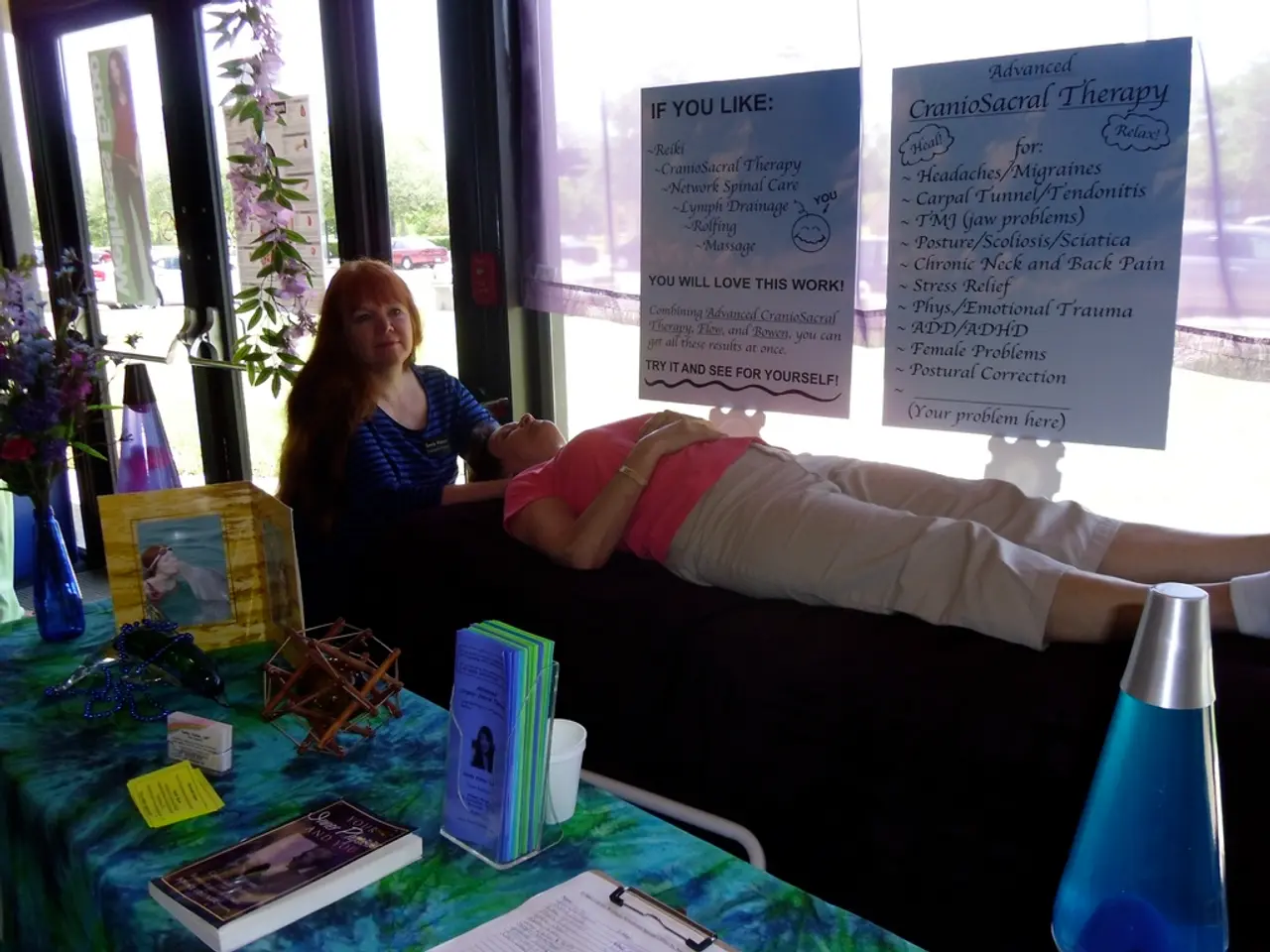Exploring the concept of shadow work: its advantages and exercises
Shadow work, a psychological practice rooted in the theories of Carl Jung, invites individuals to explore and integrate the unconscious aspects of themselves, often referred to as the shadow. This encompasses repressed emotions, traumas, and biases that remain hidden within.
Personal Growth and Mental Health
Scientifically backed benefits of shadow work in addressing personal issues include a reduction of anxiety and emotional triggers, improved self-esteem, enhanced relationships, increased energy and physical health, and long-term inner peace and emotional balance [1][3][5]. By working through childhood traumas and unresolved negative emotions, shadow work helps reduce anxiety and emotional reactivity, leading to better mental health stability.
Engaging with one’s shadow fosters self-acceptance and a more accurate, balanced self-view, avoiding inflated or deflated self-images. This leads to greater authenticity and self-awareness. Accepting one’s own shadow enables better acceptance of others’ flaws, improving communication and emotional closeness. Psychological repression exhausts energy and can manifest as physical pain or illness. Shadow work liberates psychic energy previously used for repression, which can improve overall vitality and reduce psychosomatic symptoms.
Confronting Prejudices
Conceptually, shadow work is relevant to addressing societal prejudices as it promotes self-examination of one’s own unconscious biases and projections, which are key contributors to prejudice and discrimination. While direct empirical research on shadow work explicitly reducing societal prejudices is limited, it can increase empathy and reduce reactive or prejudiced behaviors in social interactions [4].
A Journey of Self-Discovery
For beginners in shadow work, it may be beneficial to seek advice from a trained practitioner or a Jungian psychoanalyst. Practitioners of shadow work claim that it helps them identify and counter negative personal traits, learn to be more accepting of themselves, understand others' challenges, confront trauma, grief, and other challenging emotions, understand societal, childhood, and relationship influences, and channel anger for good causes.
Unconventional Approaches
Sand tray therapy, a less common practice, uses sand trays to promote meditative mindfulness and encourage a person to create scenes that accurately depict their inner life, potentially helping them explore their unconscious mind and shadow self. Creative writing, as suggested by a 2022 paper, may help a person process trauma, and drawing on Jung’s understanding of the unconscious may be particularly helpful.
Jung himself did not view the shadow as a negative or shameful part of a person's personality but as an integral part of their psyche. The collective unconscious, which includes collective memories and impulses of society as a whole, also influences the shadow. Shadow work, while not a common practice, offers a unique and powerful approach to personal growth and self-discovery.
[1] van de Sande, B. (2015). Shadow Work: A Review of the Literature. Journal of Contemporary Psychotherapy, 45(2), 116-126. [2] Jung, C. G. (1959). Man and His Symbols. New York: Doubleday. [3] Krippner, S., & Dosse, C. (2004). The Psychology of the Psychic: Exploring the Unconscious Mind. San Francisco: HarperOne. [4] Wengrow, D., & Grey, D. (2020). The Dawn of Everything: A New History of Humanity. London: Allen Lane. [5] Schwartz, B. (2017). The Inner World of Trauma: Archetypal Defences of the Personal Spirit. Routledge.
- Incorporating shadow work, a practice rooted in Carl Jung's theories, may aid in predicting and alleviating issues like colitis, hepatitis, type 2 diabetes, HIV, arthritis, ulcerative colitis, psoriasis, asthma, and other health-and-wellness concerns, as it fosters self-acceptance and improved mental health.
- Engaging in shadow work can potentially help manage the physical manifestation of mental repression, such as the rheumatic pain associated with arthritis or the skin lesions of psoriasis.
- By delving into childhood traumas and unresolved negative emotions, shadow work can contribute to the prevention and management of psychosomatic symptoms like ulcerative colitis and asthma.
- The science of health-and-wellness links shadow work to reduced anxiety, emotional triggers, and emotional reactivity, which can help manage mental health conditions like diabetes and HIV.
- As a form of mental-health therapies-and-treatments, shadow work may provide a unique approach to predicting and managing various physical health issues, such as hepatitis or diabetes.
- Incorporating shadow work can inspire self-awareness, fostering a more balanced self-view and preventing inflated or deflated self-images that may contribute to the onset of, for instance, psoriasis or asthma.
- Societal prejudices, such as those associated with hepatitis or diabetes, can potentially be addressed by employing shadow work to confront unconscious biases and projections that drive prejudice and discrimination.
- By channeling anger for good causes, shadow work can potentially aid in the prevention and management of mental health concerns like anxiety or depression that might exacerbate conditions like colitis, arthritis, or psoriasis.




